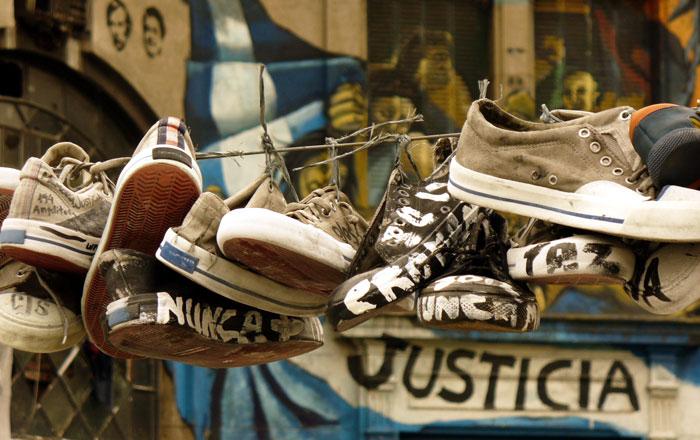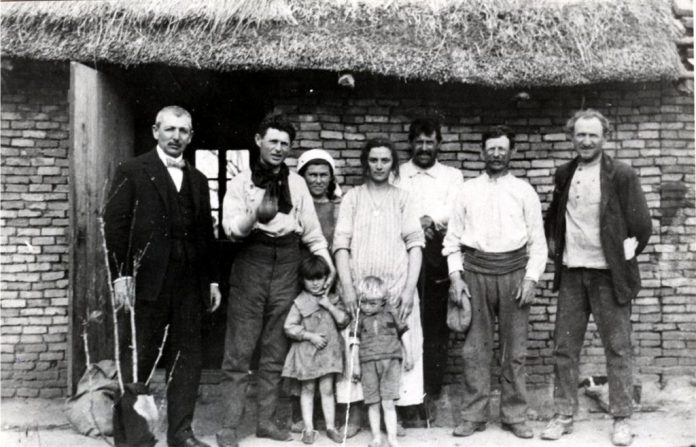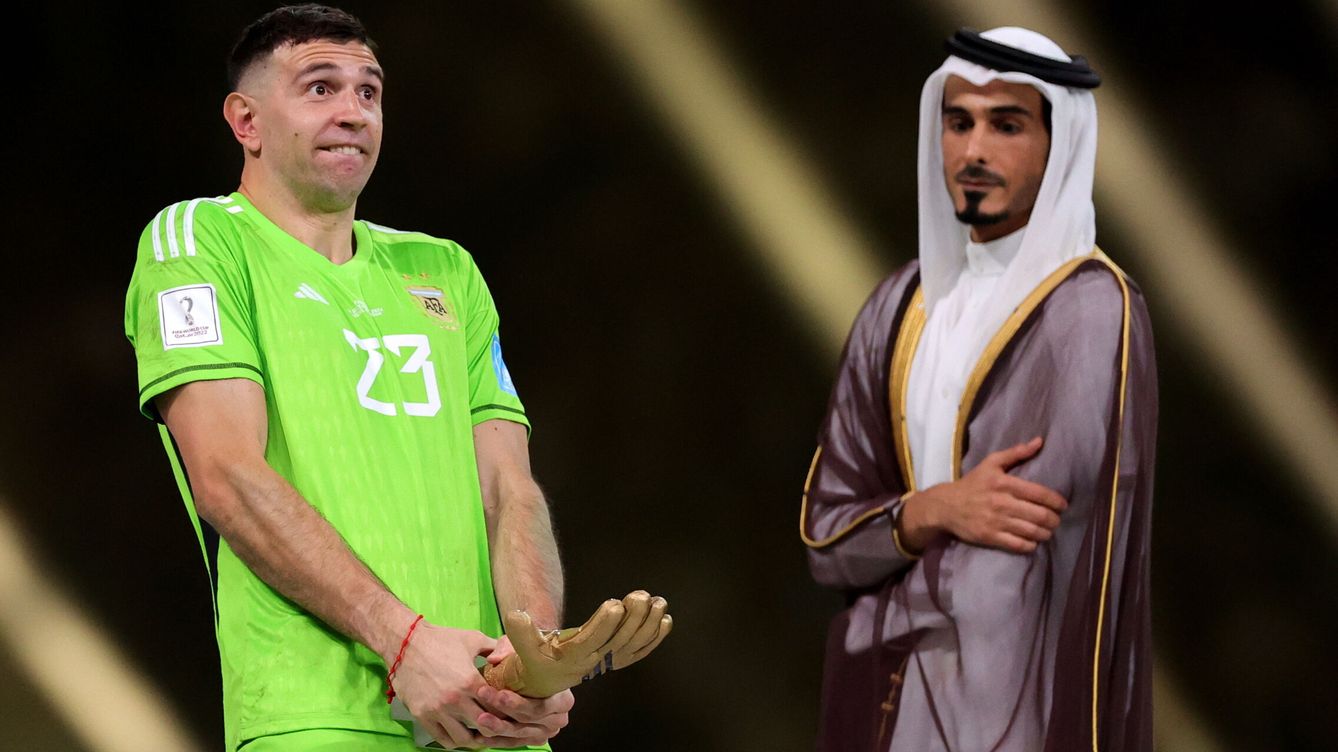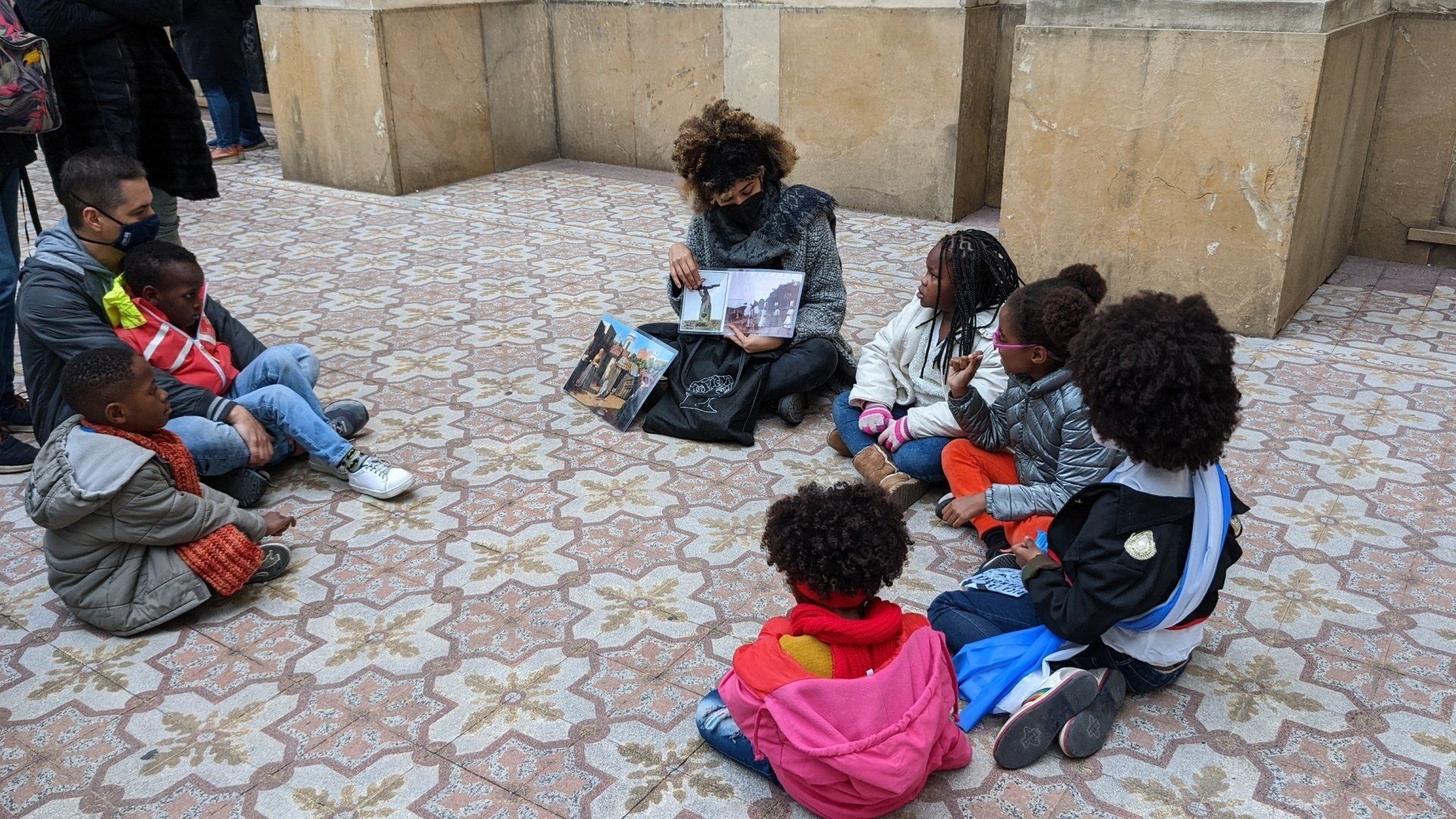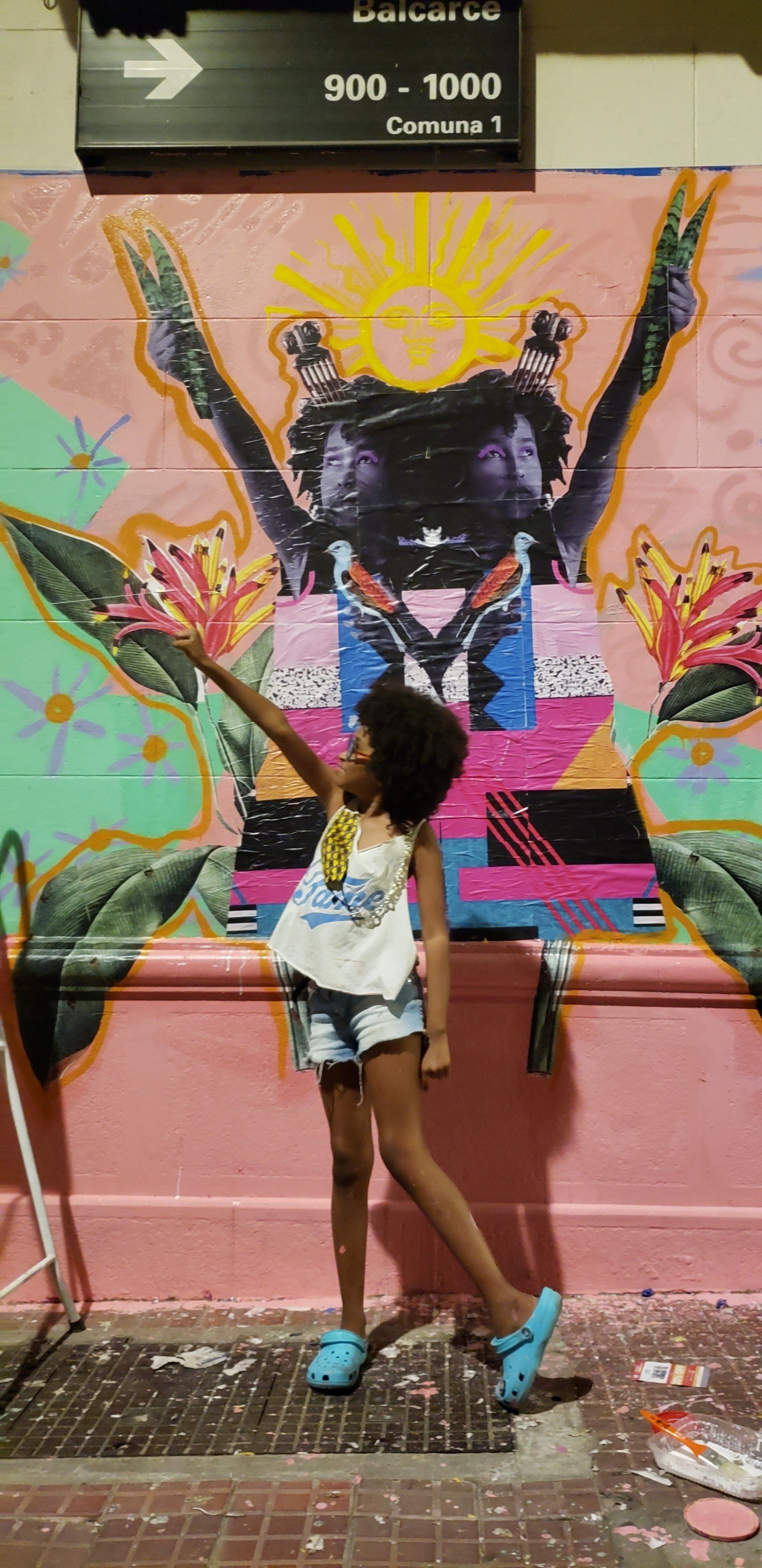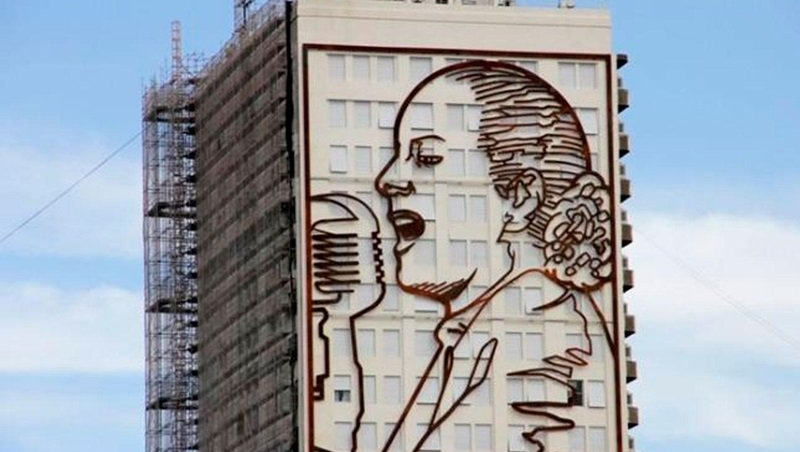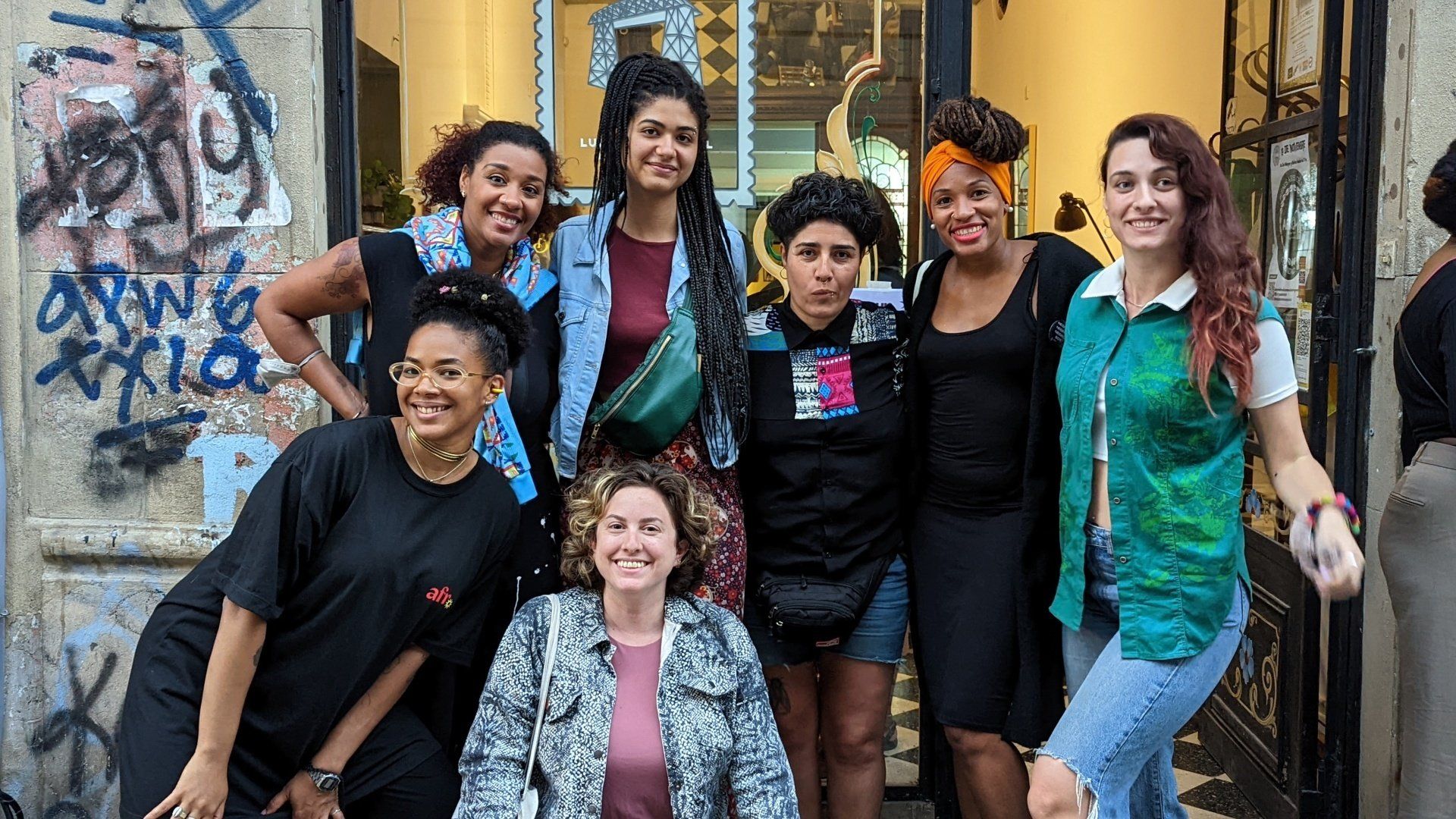Why is Argentina so OBSESSED with fútbol?
Every Argentinian can include a football-related memory as one of their earliest memories. It is either the first World Cup match you got to watch, a historical goal by your favourite team, or just playing a good old picadito on the streets of your neighborhood. Don't get us wrong, though, not everyone is maniacally obsessed with the sport. It just happens that most of us are.
The truth is that barely anybody can remain indifferent about football in Argentina, as it has played a central role in the development of the folk of our country. Whether we like it or not,
fútbol
as a practice is deeply interwoven with our history and its events; people have extended the jargon used in the pitch, recalling it heavily for everyday things regardless of age or gender*. Others denounce the show-biz around it, pointing out its use as a distraction from every other thing, from organised gang violence to the atrocity of state sponsored terrorism decades ago.
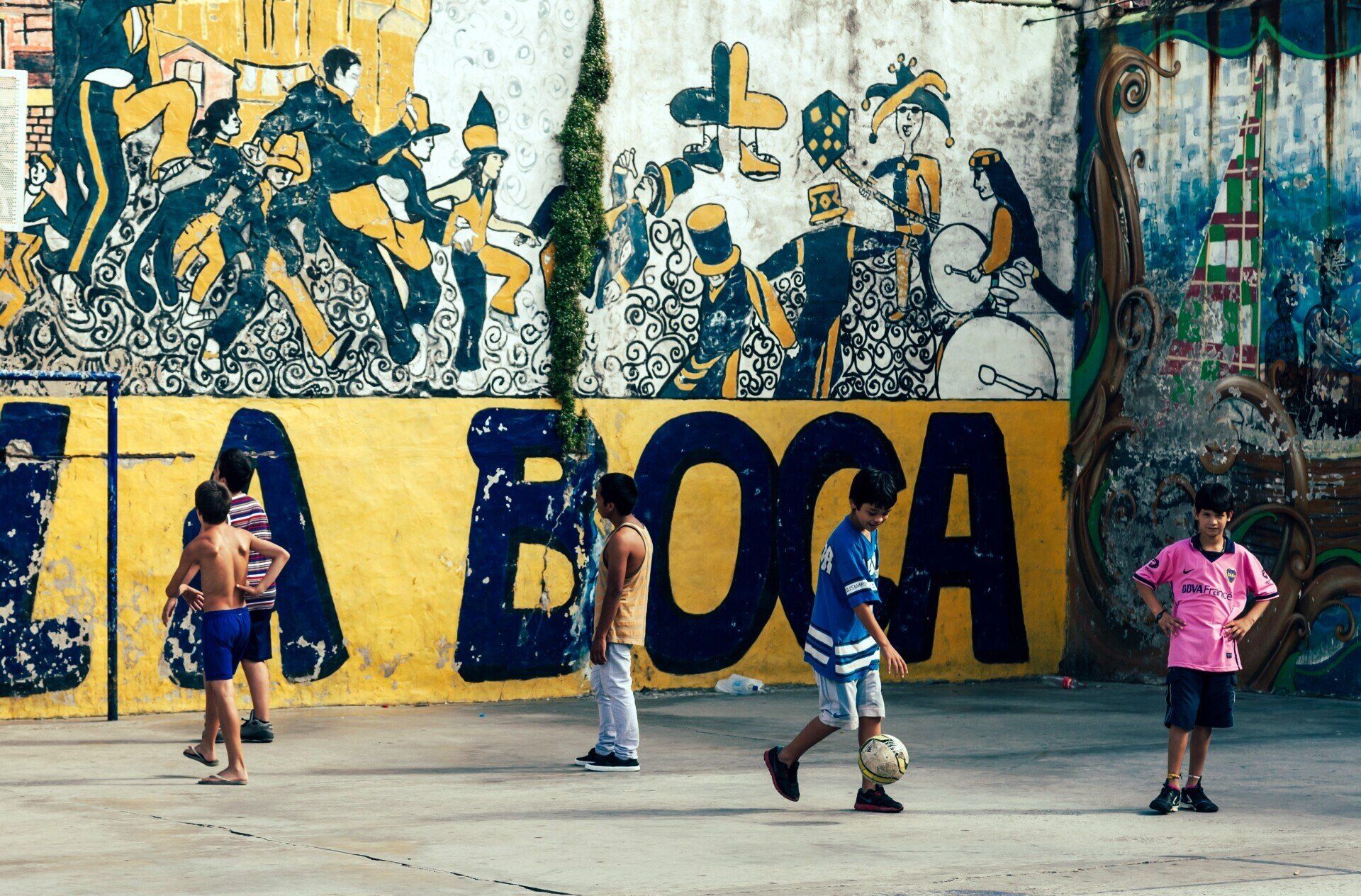
But how did this country that is so far away get so hooked up with it? We'll explain: some 150 years ago Argentina began to develop its railroad network. As was usual during those times, the job was done by British workers, who provided the technology and know-how. Among other things, they also brought their preferred pastimes. Football pitches sprawled all over and around the tracks, often built rudimentarily with no goalposts or a clearly delimited perimeter. These shabby, vernacular gathering points became potreros, the birthplace of our footballing stars. The disorganised, cheeky and dynamic style of playing that developed from these places is now a trademark of argentinian football.
The British heritage of this era is still very much present in the names of the clubs in the country: Newell's Old Boys, River Plate, All Boys, Argentinos Juniors, Pinocho Baby Fútbol Club (as pictured below), etc.
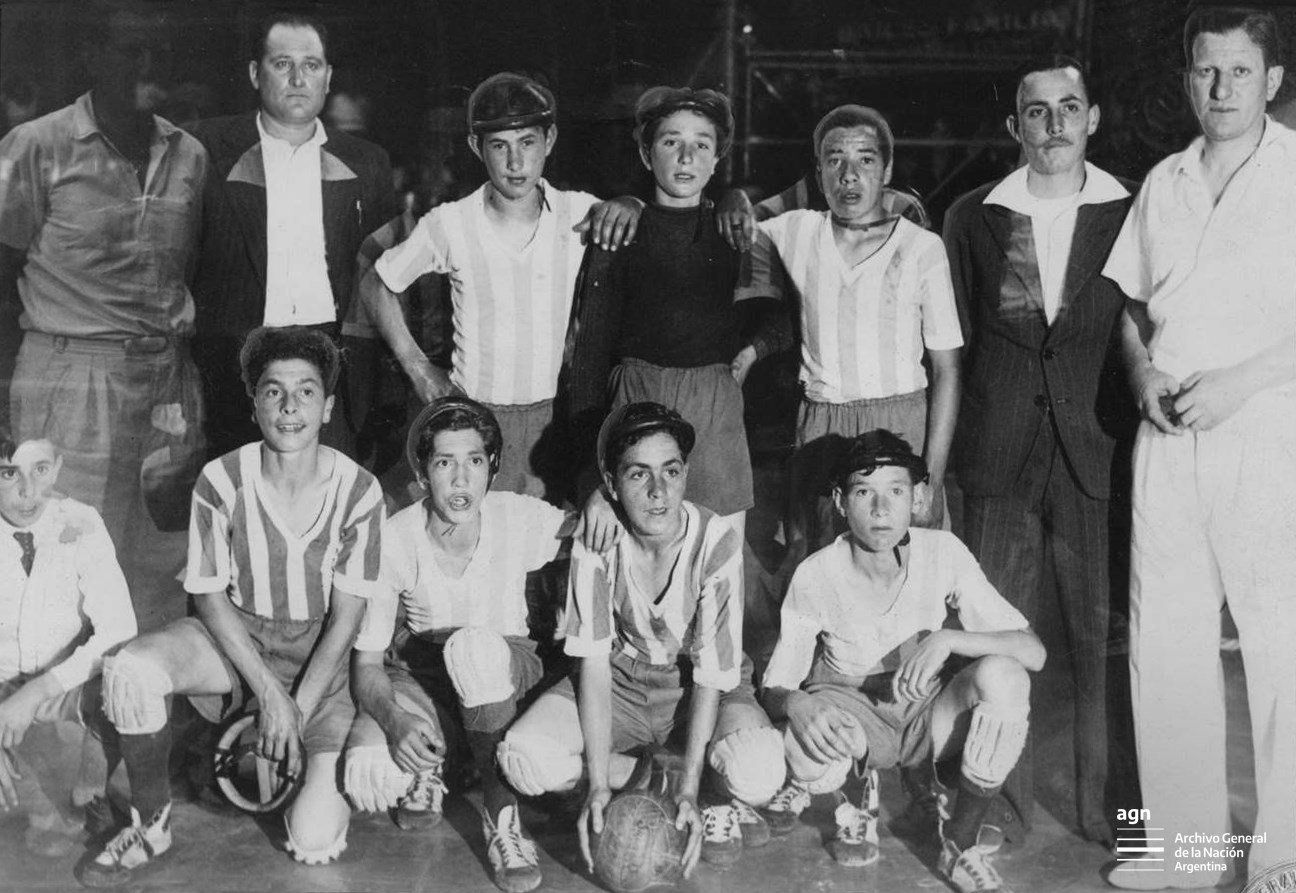
Later on, as immigration increased and demographics exploded, people from all over the world integrated into argentine society and began to make use of our customs. As such, and to this day, kids would get to know each other through playing
fútbol; having a well-kept ball could make you immensely popular. In any case, improvised pitches and balls would be built ground up, using clothing as posts and socks and cloth to kick around. No matter the class, ethos or religion, anybody could play. Or a conversation between strangers hailing from different continents could finally have an innocent bridging point:
¿Ha visto usted el partido de ayer? (Have you seen yesterday's match?). As decades passed, football ingrained itself onto us.
Nowadays, it's bigger than life. Politics and other issues tend to tear people apart, and Argentina has graciously found a way to bring it all back together (at least for some ephemeral 90 minutes). When the national team plays, it feels as if cities as a whole went to sleep under liturgical obsession and concentration; the streets breathe with relief at the sight of a missed goal against, and cry in excitement when a win is secured.
In any case,
bienvenidos amigos del fútbol!
*Some colloquial idioms that involve
fútbol:
“Picado”: Literal meaning is 'minced'. Refers to impromptu matches at potreros.
”Potrero”: Basic football court, barely maintained.
“¡Tirame un centro!”: Help me out!
“¡Golazo!”: Used to describe something that’s great, positive or uplifting.
“Pecho frío”: Literally cold-chested, used to describe cowardice.
“Aguantar los trapos”:
To hold your own, being brave against odds.
